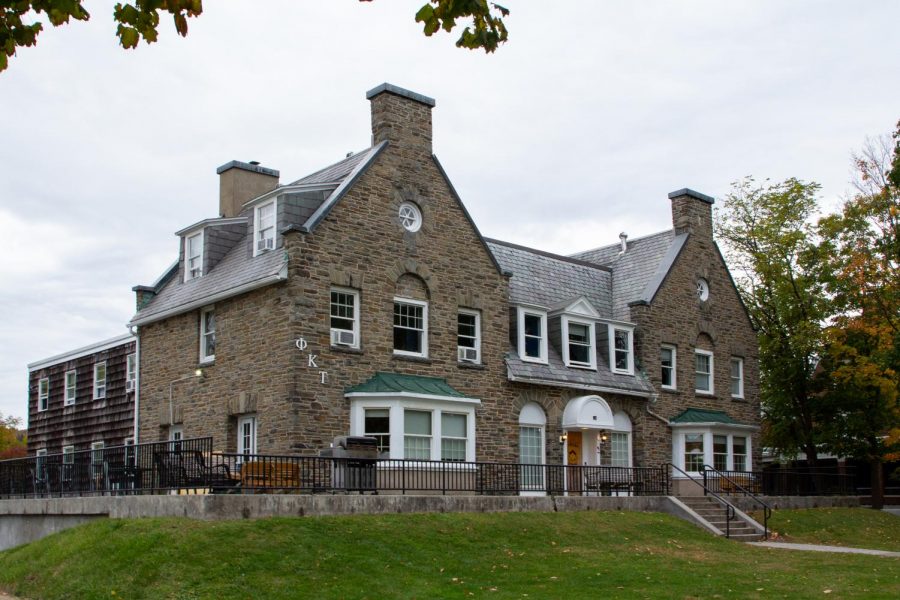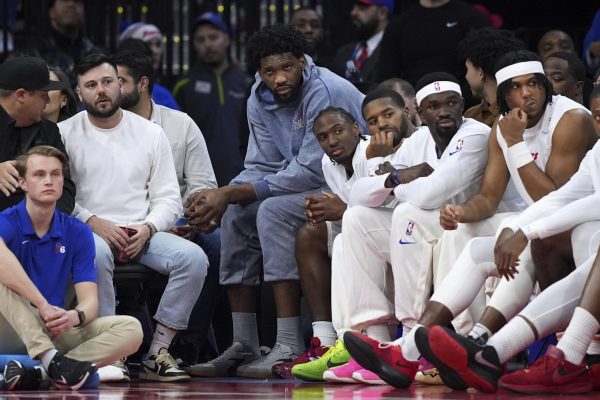Participation At Mandatory DEI Event For Greek Organizations Left Organizers Disappointed
Colgate’s Konosioni Senior Honor Society began their year of anti-racism awareness by partnering with the Colgate Student Coalition (CSC) to host a series of virtual events during the universal quarantine. Their series “13 Days of Education on Anti-Racism” included an event held specifically for Greek-affiliated students.
“A few us in Konosioni are also a part of Greek life and thought it would be a good idea to have a talk during the 13 Days centered around systemic racism in Greek life,” Helen Ferguson, a senior member of Konosioni and affiliate of Kappa Kappa Gamma, said. Working together with the Panhellenic Sorority Council and the Interfraternity Council (IFC), Konosioni and CSC were able to get bylaws passed within each chapter, “so [attendance] was mandatory for every member.”
The event was completely student-run, beginning with a lecture and ending with a discussion. The lecture used research gathered by Konosioni and CSC organizers and looked at Greek life on a national level as well as on Colgate’s campus.
“We talked about racism within Greek life in the context of national chapters … then we moved onto Colgate chapters. We found that almost every organization on this campus has had very racist events in their chapter’s history, and many of them are not 50 years ago, they’re like 20 years ago, or 10 years ago… We talked about barriers to entry, like how expensive it is, we talked about how rush practices are a subjective system in which the individuals in it are predominantly white, many of them are cis[gender] and straight, and so they’re probably going to pick individuals who are the same,” Nik Rajavasireddy, one of the event organizers, a former affiliate of Delta Upsilon and a senior member of Konosioni, said.
The lecture also included subjective opinions from an anonymous survey about personal experiences in Greek spaces, from both affiliated and unaffiliated people of color on campus.
The second portion utilized break-out rooms for discussions, each hosted by one of about 30 student facilitators.
“We had breakout rooms with 12-15 people each. I was a facilitator and we had a set of discussion questions to talk about, like what you think racism looks like in your chapter, what you can do to help this, what is tokenism, that kind of thing,” Ferguson explained.
Though Ferguson believes the presentations went well, the response from the students was disheartening for her and the other Konosioni and CSC organizers.
“I felt like I was pulling teeth trying to get people to talk,” she said.
Rajavasireddy agreed that the participation was discouraging.
“It’s probably been the biggest DEI event that Greek life has ever done [on campus]… We felt that the individuals who were participating were the same individuals who would come to these kinds of events even if they weren’t mandatory, and are probably the individuals who are speaking out in their organizations against racism already,” he said. “I think [those who chose not to participate] viewed it as kind of a check box.”
Moving forward for the semester, Konosioni plans to host more anti-racism events and address the lack of engagement.
“We wanted [13 Days] to be kind of this kickoff,” Ferguson said, hoping the early event would set the tone for a semester of DEI awareness on campus. “It is definitely something [Konosioni members] want to continue, especially with Greek life.”
According to statistics gathered for their event by Hannah Rodriguez-Farrar, Chief of Staff to President Brian Casey, diversity within Greek organizations has been decreasing despite the increased diversity on campus.
“No black women registered for recruitment this year. Not one. Women of color did, but very few,” Ferguson said.
In the hopes of generating reflection after the event, Ferguson along with a few other members of Konosioni posted to their chapter’s shared Facebook groups, expressing their disappointment with the event participation.
“It was something like ‘Look, that didn’t go well… If you can’t see how you perpetuate harm you need to ask yourself if you deserve the privilege of being a part of this group,’” Ferguson said. “I got a few responses apologizing, but not enough to excuse the hundreds of people who failed to participate.”
When asked about her hope for anti-racism awareness in Greek organizations, Ferguson said, “This summer I was like ‘Okay, now we’re going to wake up and see it.’ But I personally still feel like Greek organizations haven’t had that moment of like, ‘How did it take all of these murders coming to light for us to see it?’ … If you’re not angry now, you’re not going to get angry… How many more lives have to be lost for you to care?”
Rajavasireddy disaffiliated this year, and shares Ferguson’s concern for Greek organizations.
“Institutions at Colgate are static, and have these traditions, and money from alumni, and it makes it impossible for anything to be straight-up abolished,” he said.
Rajavasireddy and Ferguson recognize the system isn’t going anywhere, which is why they are working alongside the other members of Konosioni this year to bring awareness to campus that might help reform Greek life.
“I think there are so many good people within Greek life on campus,” Rajavasireddy said. “So I do think there is the potential for change.”










